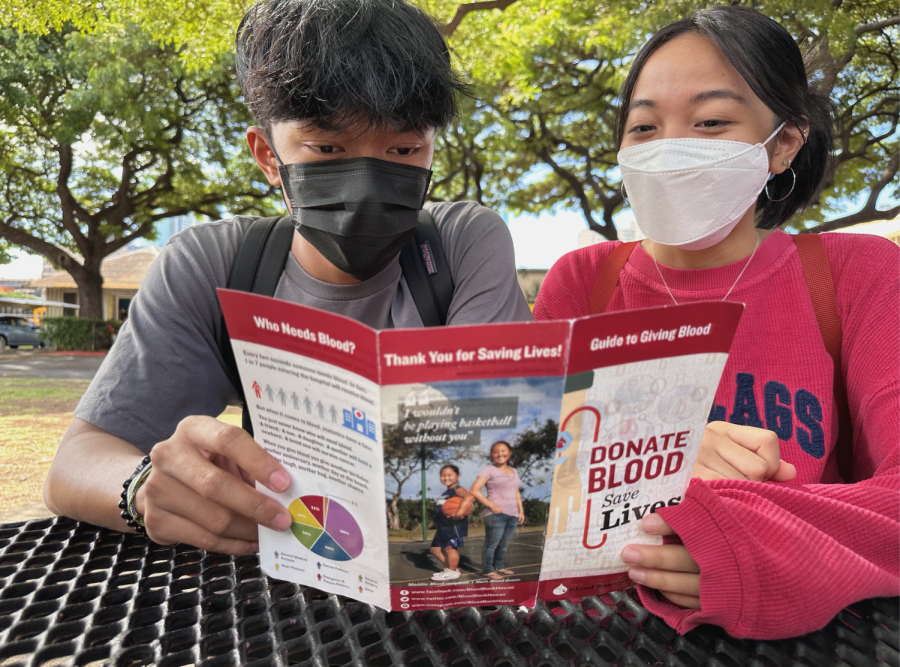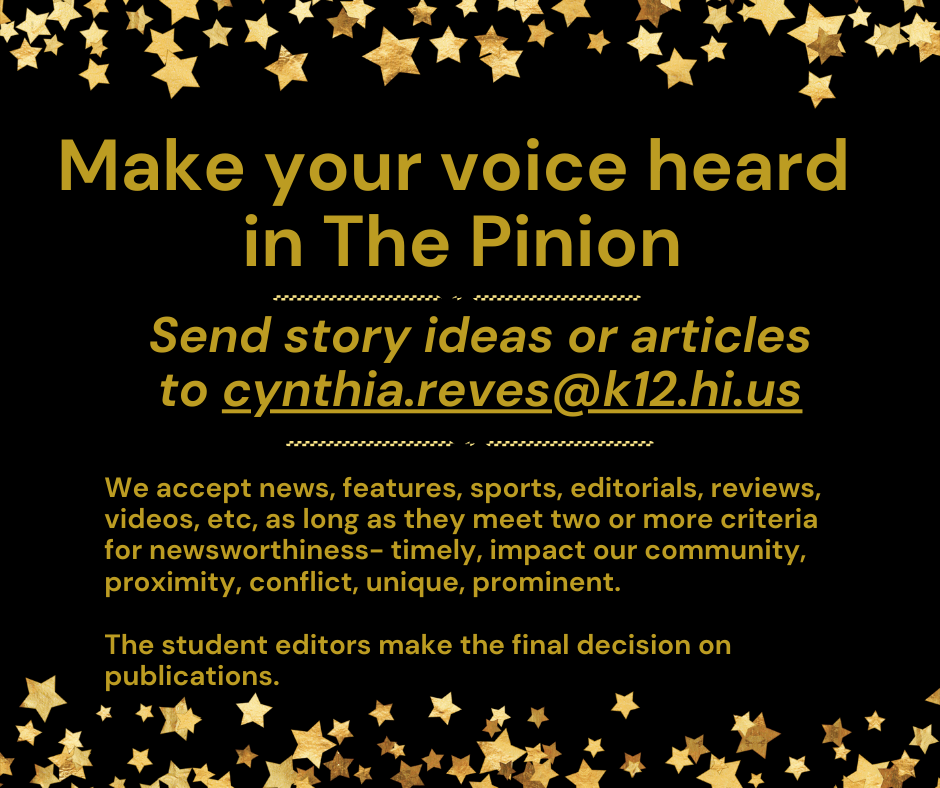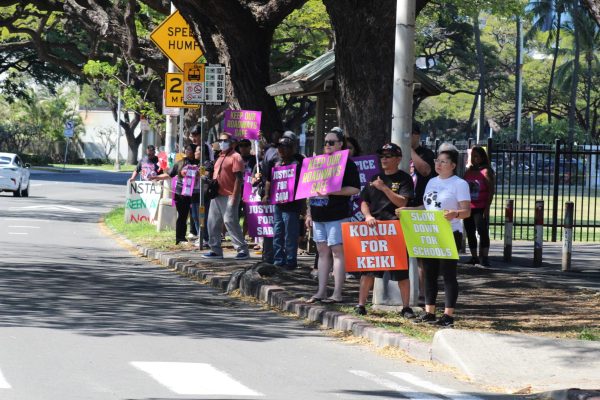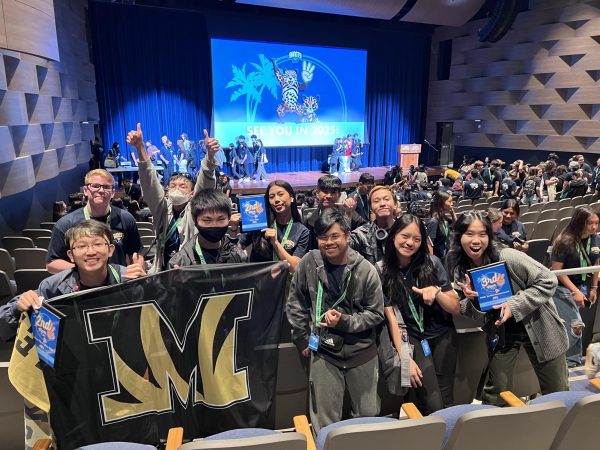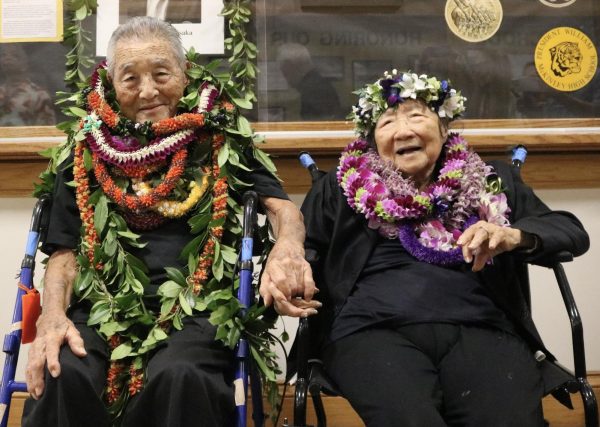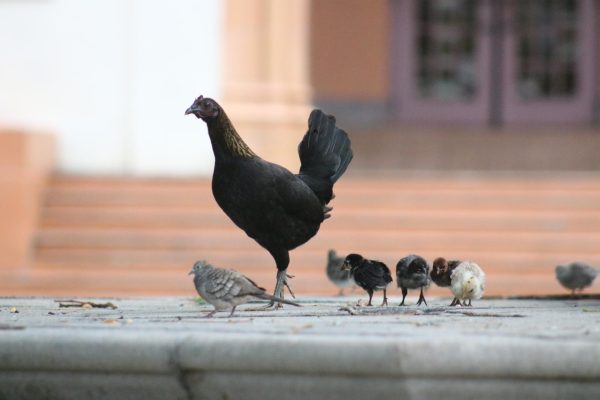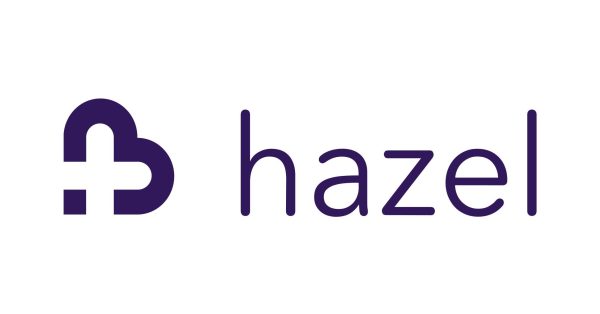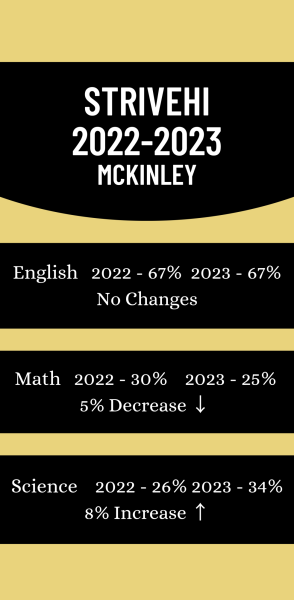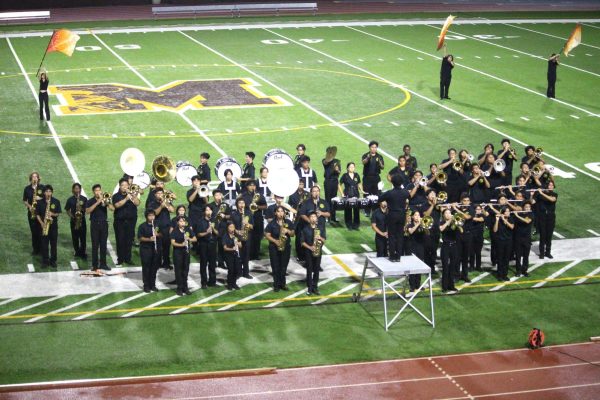McKinley Blood Drive Promotes Leadership and Health Awareness
Senior Shaun Sacro, who donated at the October drive, and October Ambassador Kimberly Epit look at the McKinley Blood Drive brochure.
January 10, 2023
The American Red Cross recently declared its “first-ever blood crisis” due to a critical blood shortage earlier this year. McKinley High School’s 11th blood drive in October, was a reported success surpassing its goal with 51 registered donors and plans for another drive on Feb. 8.
Traditionally hosting two blood drives per year, McKinley High School has been hosting since 2012.
Blood Drive Host and Health Science teacher Tiffany Miyashiro recalled the events during the blood drive as a success.“The process of blood drives takes a lot of planning and preparation,” Miyashiro said. “We reached our donor goal of 40 members and actually exceeded it.”
Through this process, Miyashiro and other blood drive organizers were able to raise awareness about blood donation and promote healthy lives.
Blood is essential for patients to survive critical surgeries, cancer treatments, injuries, blood disorders and more, with a single donation giving a chance to save up to three lives. In the U.S, someone is in need of blood every two seconds. But through collections of blood during donations, blood banks are able to source and provide for hospitals and other health facilities, according to the Blood Bank of Hawaii.
Recently, the American Red Cross Organization declared its “first-ever blood crisis” due to a critical blood shortage earlier this year from the events of Covid 19 and the Omicron surge. It resulted in doctors delaying critical blood transfusions and the Red Cross had to “limit blood distribution to hospitals.” Patients have had to wait days to weeks before they could continue with treatments and certain conditions worsened from lack of blood supply.
Hawaii was also affected by the blood shortage. In June of 2022, there was a critical shortage of O-negative blood and Hawaii has since continued to regain its loss. With its fragile blood supply, the Blood Bank of Hawaii has called upon all donors to give back as reported by KHON2. They continue to try to replenish their O-negative blood supply by calling upon all first-time and returning donors.
The Blood Bank of Hawaii serves as the community’s blood center with a mission to provide a safe and adequate supply of blood, products and related transfusion services to the patients of the state. Prior to donations, the safety of donors is of the highest priority.
By strictly adhering to the regulations of the Food and Drug Administration, standards must be met to determine donor eligibility. At the time of donation, you must be in good health, 16 years of age or older, weigh at least 110 pounds, and have a photo ID.
To lessen the symptoms of reactions after donations, it is required that before you donate you drink 8-10 glasses of water, get adequate rest, eat a healthy meal, know the countries you’ve recently visited and know any medical conditions. In fact, the Blood Bank of Hawaii has its own donation site for any interested donor.
This October at McKinley, there were a few complications during the October drive regarding how a few students reacted after donating and the symptoms that occurred. But with careful planning and consideration, Miyashiro was prepared for any side effects and provided water, snacks, cookies made by the Culinary Club, and even a place to rest afterward if needed.
McKinley senior Kimberly Epit was the October Blood Drive Ambassador after being offered the position by Miyashiro and acted as the student representative. Through this experience she said she learned a lot about how to be a leader, giving roles, taking on responsibilities and helping others. This blood drive became a learning experience for everyone involved.
“I didn’t realize how important blood was until I went into the workshop and people were telling their personal stories,” Epit said. “You don’t know who you could be helping in your community.”
Donors play a vital role in the blood supply for patients worldwide. Without them, patient mortality rates would significantly increase. McKinley senior Allen John Reyes, a third-time donor, participated in the October drive and plans to donate again at the next drive. But his reason for doing so draws from personal experiences. During his birth in the Philippines, Reyes was born prematurely, causing him to be in critical need of a blood transfusion.
Fortunately, the hospital was prepared and he was able to get the treatments he needed to be healthy again. Reyes said without the blood of others, he wouldn’t be the person he is today, ready to proudly serve his country. By volunteering for the event and donating afterward, he wants to now help others in the community who may need blood.
Whether donating in school or at sites, the critical need for blood is constant. Epit continues to encourage others to donate blood to help people in the community. “I’m really grateful that there are selfless people out there,” she said.



